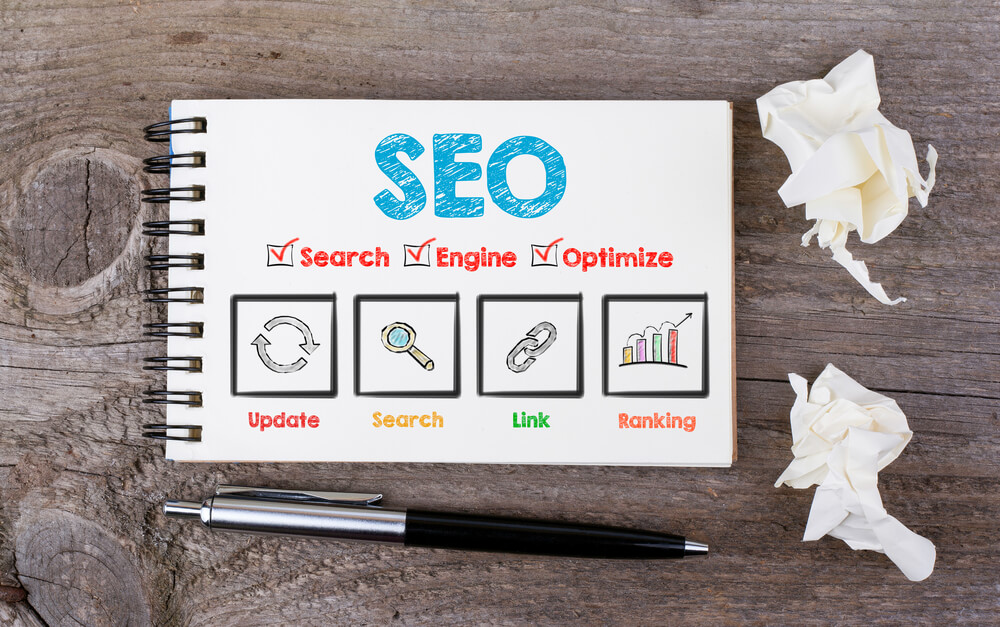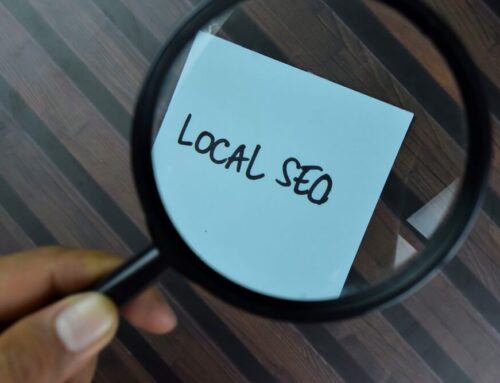Google Ads and Search Engine Optimisation (SEO) are often handled separately but, together, they are a good team.
Finding the right keywords is a very important step for Search Engine Optimisation. Here, we explain exactly how Google Ads can help — and how you can see if your SEO strategy is successful.
Imagine what it would be like if you could estimate the success of a Search Engine Optimisation (SEO) campaign in advance. Imagine if you could say that after a one-year SEO strategy plan has been implemented, this will result in a monthly profit of £50,000!
Most decision-makers believe that Search Engine Optimisation is an uncontrollable process; absolutely unpredictable and even less plannable. You hear it again and again: “SEO does not work. We’ve tried for years.” That is partly true.
Common SEO Mistakes
The reasons for SEO failure can be many and varied: missing OnPage optimization, doubtful link building, bad content, or insufficient budget.
In many cases, however, the problem is quite different. At the beginning of the project, “only” a classical keyword search was made, but real User Data was not collected. This problem can be solved by a simple test with Google Ads, Google’s online advertising program that can be used to place text ads in the Search Engine Results Pages (SERPs).
Search Engine Optimisation is not a guessing game. You can also check whether the selected search terms are the right ones by using paid search ads, but Google Ads campaigns are still far too rarely used for SEO.

SEO Forecasting With Google Ads
For the success of an SEO campaign, it is completely uninteresting how many directory entries were made, guest contributions published, or pages optimized. It doesn’t even matter if the website receives thousands of visitors through organic search. Rankings are also an ego trip, rather than a good indicator of a successful campaign.
What really matters is how much profit the SEO traffic generates. Google Ads is the perfect testing ground for SEO. The tool makes it possible to predict the monetary value of a successful SEO campaign fairly accurately, even before time and money have been invested.
A simple test determines the future success of an SEO campaign. What you can do: You do extensive Keyword Research and start a Google Ads campaign based on these keywords. After a few weeks, you will evaluate the data and know which keywords “work” and which ones you can safely neglect. If you don’t take this step, you will risk poor results even with good rankings. The test quickly shows you whether or not you will have positive results in an SEO campaign.
A Practical Example of the Combination of Google Ads and SEO
A fitness trainer offers a 12-week program, which takes place predominantly online. It is not a classic personal training in the gym with equipment but adapts to the wishes of the customer. In this way, an equipment-free training plan can also be created. Which keywords should the website be optimized for? “Personal Trainer” or “Fitness Coach”? One thing is certain: The search terms are all quite competitive, especially in big cities like London or New York. So it takes a lot of time, money, and know-how to rank in the search results.
He decides to hire an SEO freelancer, who will need six to nine months to rank his site at the top of Google search results for these keywords. Now thousands of visitors come to the website every month, but purchases and inquiries are hardly generated. So, you try Conversion Rate Optimisation. This increases the conversion rate a little bit, but the project doesn’t pay off anyway.
Does such a classic SEO blind flight make sense from your point of view? Probably not. And how can it be that a competitor, who only receives 500 visitors per month on his website, makes much more turnover and has a very positive Return on Investment (ROI)?
A simple Google Ads campaign at the beginning could have prevented this financial debacle. You think you know the intention behind a search but, in reality, you are completely wrong.
In this case, prospective customers are looking for an “Online Workout Program”. The keywords “Personal Trainer” and “Fitness Coach”, on the other hand, only attract visitors who are interested in a classical solution — they are not the target group of the trainer. The users, therefore, cannot find what they are looking for.
The website is ranking well in the organic search results, but obviously for the “wrong” keywords. So much work for nothing.
Would SEO Pay Off?
To run our SEO test, a rough keyword search with the Google Keyword Planner is sufficient. You must also set up Google Ads conversion tracking. Here, you can see exactly how much you have spent per keyword and what you ended up with. Usually, a break-even point (where expenditures and revenues are equal) is sufficient to justify an SEO campaign.
Another advantage: A paid search campaign allows you to estimate the costs per inquiry or sale. In this way, other channels can also be better evaluated.
Real User Data vs. Keyword Research
You’re probably thinking, “Great, so I don’t just have to invest in SEO, but I’m also spending a lot of money on Ads. Surely I can neglect that. I know exactly which keywords are the right ones.”
An SEO campaign starts with comprehensive keyword research. Many people only use the Google Keyword Planner and may also look at the competition. After all, the competition has to know which keywords make the most profit, right?
In addition to search queries, the Keyword Planner also provides the monthly search volume and the costs per click for Search Ads. A keyword with a high click price is usually interpreted as particularly lucrative. The logic: If a lot is offered, it must be earned accordingly.
Unfortunately wrong! There is a good chance that the competition will not carry out any tests, have no measurement concept, and work hoping for the best. Maybe it is still worthwhile, but why not maximize the success by a small test in advance?
The information from a Keyword Research Tool can never replace real test data from an AdWords campaign.
Why Some SEO Agencies Avoid This Strategy?

SEO agencies avoid this method because it could become clear that an investment in SEO is not profitable. That’s bad for business, and therefore skillfully ignored.
Note: I do not claim that every agency that avoids this method is dubious.
Another favorite argument against Search Ads for SEO is that the so-called long tail, the long keywords, are neglected. This is partly to be agreed, but rough tests are necessary in advance to align the campaign. Even if the true value of SEO is hidden in the long tail, the potential can already be checked through short tail keywords.
Using Google Ads to Buy Back Keyword Data
The times were good when Google Analytics still had all the keyword data. Looking at the digital analytics tool, it was clear which organic keywords generated how many sales. A dream! Then came “Secure Search”, better known as “not provided”. Suddenly, the search terms used by website visitors were no longer displayed in analysis tools, but hidden behind the meaningless “not provided”.
First, a small part of the access keywords was hidden. Today, we are in most of the niches at over 95 percent “hidden keywords”. This makes SEO evaluations more complex and less informative than before. Of course, you can use the target page to estimate which search term was used, but it is simply not the same.
This is another reason why I always recommend an additional Search ad campaign to customers — not just at the beginning, but on an ongoing basis. With AdWords, it is possible to buy back the “hidden” keyword data. These help SEO from a strategic point of view and generate additional traffic.
Conclusion
SEO without Google Ads is like flying blind today. You achieve success only through “Trial and Error”. This is not only unprofessional but also a waste of resources. Even if the budget is low, Paid Search Ads must be part of an SEO Strategy. Not necessarily as a marketing channel, but as a compass.
SOURCE: Medium










